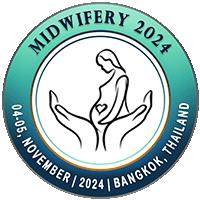
Tara H
Srinivas institute of medical sciences and research Center, IndiaTitle: Unusual Manifestation of Central Hypothyroidism
Abstract
INTRODUCTION: Central hypothyroidism can occur in any condition associated with developmental defects of pituitary or hypothalamus. Central hypothyroidism occurs in 1 in 16000 to 30000 infants1. Deficiency of TSH may be caused by mutation in the genes coding for transcription factor essential for pituitary development or thyrotrope cell stimulation. Clinical manifestations, are often subtle at birth due to placental transfer of T4 .Common presentations include lethargy, sluggishness, hoarse cry, feeding problems, constipation, macroglossia, large fontanelle, umbilical hernia, hypotonia, delayed bone age, dry skin and hypothermia. Congenital hypothyroidism can rarely present with seizures2,3,4,apnea5.Here in we report a case of an infant who presented with seizures, secondary to central hypothyroidism.
CASE REPORT:A 2 and ½ month old female child with normal antenatal and perinatal history presented with complaints of noisy breathing since birth ,cough since 4 days. At admission infant had an episode of convulsion in the form of uprolling of eyeballs and posturing of all four limbs associated with bluish discoloration of the body.Child also had an apneic spell associated with cyanosis and bradycardia, during course of hospital stay for which child was intubated.Child had multiple episodes of convulsions on ventilator and which settled with anticonvulsants.
On examination, child had coarse facies and large protruding tongue(figure1). No evidence of external congenital defect.The other systemic examination was unremarkable. Laboratory investigations revealed CBC-and chest –X-Ray as normal. Metabolic work up including GRBS (98mg/dl),serum calcium(7.9mg/dl),magnesium(1.8mg/dl),and serum electrolytes(Na+136mmol/l,K+5.5mmol/lt) were within normal limits . Echocardiography was normal.EEG showed abnormal generalized electrical activity . CT brain showed no abnormalities(figure2).
As the child had coarse facies and large tongue ,the infant was evaluated for hypothyroidism, TFT was sent after seizures were controlled, and was found to have reduced TSH(2.7microunits/ml),with normal levels of freeT3 (2.86pg/ml),and freeT4(0.9ng/dl) suggestive of central hypothyroidism.However,workup for other pituitary hormones were not done. The child was started on l-thyroxine(8microgm/kg).Child improved with treatment and was on mechanical ventilator for 6days,there were no further episodes of convulsions.The child was discharged after 15days of hospital stay with l-thyroxine.After 3 months during follow up repeat free T4 levels(1.4ng/dl) done was normal,no signs of thyrotoxicosis,and the child is doing well.
DISCUSSION:
Till date,only four case reports of congenital hypothyroidism presenting with seizures have been reported worldwide,of which one was from India4.In our case the child presented with convulsions but during hospital stay ,had apnea which improved with l -thyroxine therapy. The infant reported here had Hypothyroidism that presented in the infantile period with seizures unresponsive to conventional therapy. Decreased levels of thyroid stimulating hormone (TSH) and low/normal levels of T4 are confirmatory for this disorder. In our child, central hypothyroidism was attributed as the cause for seizures because as testing for , infectious etiology, and metabolic causes was normal and response to thyroxine .
The exact mechanism is not known ,however the proposed mechanism as per several animal studies have shown that congenital hypothyroidism has been associated with excessive or abnormal synchronous neuronal activity in the neocortex and hippocampus indicating the pathophysiological process leading to seizures6.Moreover, Neurotransmitter regulation, synaptogensis, neurogenesis, neuronal migration, axon and dendrite formation are all dependent on thyroxine3.
CONCLUSION:
Though hypothyroidism presenting as seizure is a rare entity, high index of suspicion is required when unresponsive to conventional management.
Biography
Dr.Tara H, is chair person in department of Paediatrics, Srinivas institute of medical sciences and research Center, Mukka, Surathkal

